Search Results
Showing results 41 to 60 of 60

Sound Representation: Modems Unplugged
Source Institutions
In this activity, learners listen to songs and decode hidden messages based on the same principle as a modem. As a final challenge, learners decode the binary messages in a music video.

Audio Boggle: Make a Sound Track
Source Institutions
Audio Boggle is an activity that lets you listen to a track (that you make yourself) and see what you can hear!
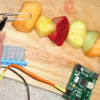
Fruit Xylophone: Fruit Salad Instrument of the Future!
Source Institutions
This is a perfect summertime lunch activity! Pico Cricket is required (micro controller). First, get a bunch of cut up fruit, line them up, then plug a piece of fruit with a Pico Cricket sensor clip.
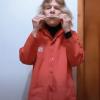
A Kazoo for YOU
Source Institutions
In this activity, learners will build an instrument from common household items. Explore sound through vibrations created by your vocal chords and captured by an instrument.

Oboe? Oh, Boy!
Source Institutions
In this activity, learners create a straw oboe to explore sound and pitch.
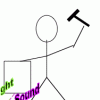
Lagging Sound
Source Institutions
In this group activity, learners see and hear the speed of sound. A learner designated the "gonger" hits a gong, once every second, as the rest of the group watches and listens from a distance.

CD Spectrometer
Source Institutions
In this activity, learners use a compact disc to make a spectrometer, an instrument used to measure properties of light.
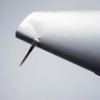
Cactus Needle Phonograph
Source Institutions
Build a phonograph record player using a cactus needle, a record, LEGOs gear box, and a piece of paper! This activity uses a Pico Cricket to turn the motor.
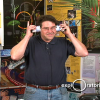
Make a Speaker: A Coil, a Magnet, and Thou
Source Institutions
Make your own simple speaker so you can listen to your favorite radio station. Just wind a coil, attach it to a piece of cardboard or Styrofoam, hold a magnet nearby, and listen.
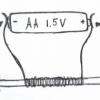
Make a Speaker
Source Institutions
In this activity, learners explore how an electromagnet works by making a simple one. Using this knowledge, learners design a diagram to make a working speaker using household materials.
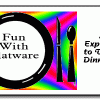
Fun with Flatware: Little Experiments to Try at the Dinner Table
Source Institutions
This is a series of three quick science activities to do with a spoon, knife, and fork. In the first two activities, learners use the flatware to explore optics, mirrors, reflection, and distortion.
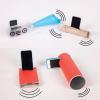
Tune Booster
Source Institutions
In this activity, learners build unique sound enhancing inventions with items from around the house to amplify sound from their smart phone's speakers.
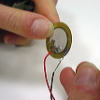
Electric Cup Guitar
Source Institutions
Make a one-string "guitar" by stringing a cup with some fishing line. You amplify the plucking of the string by placing a piezo contact microphone and mini battery powered amplifier inside the cup.
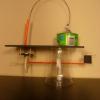
Sound Automata
Source Institutions
In this activity, learners build their own sound machines and explore the interplay of motion and sound.
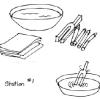
Good Vibrations
Source Institutions
This lesson (on pages 15-24 of PDF) explores how sound is caused by vibrating objects. It explains that we hear by feeling vibrations passing through the air.
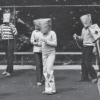
Sound Off!
Source Institutions
This activity includes several games about animal sounds. Using their sense of hearing and communicating with various kinds of noisemakers, learners role-play predator and prey.
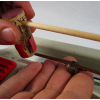
How to Make an Audio Tape Bow
Source Institutions
From this How To slide show, you create an Audio Tape Bow that can play distorted audio sounds by running it across a tape head.
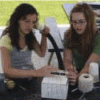
Headphone Helper
Source Institutions
In this design challenge activity, learners add headphones to a previously built instrument (see "Build a Band" activity) to make it easier to hear.
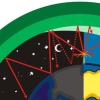
AM in the PM
Source Institutions
In this activity, learners will listen to as many radio stations as possible to discover that AM radio signals can travel many hundreds of miles at night.
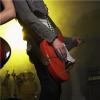
Probability: Rock Around The Clock
Source Institutions
In this math lesson, learners apply the Monte Carlo method of simulation to determine a reasonable estimate.
